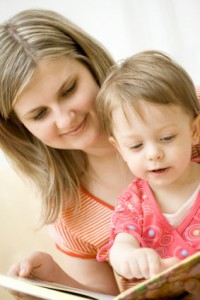Toddlers are characteristically eager to explore the world which often results to tumbles and falls that leads to unsightly bumps to the head. It is vital to determine if the child might end up with a concussion. A concussion is also called as a mild traumatic brain injury which involves disruption of the normal brain function that is triggered by a jolt or blow to the head. When it comes to a concussion, it is quite common among toddlers, thus it is vital to be familiar with the signs and symptoms since toddlers could not clearly voice out what they are experiencing.
https://www.youtube.com/watch?v=tgChTeALF7g
Primary symptoms
If the toddler passes out right after sustaining a bump on the head, it is a warning indication of a possible concussion even if it only lasts for a few seconds. Nevertheless, loss of consciousness does not occur in up to 90% of concussions.
The usual initial symptoms to watch out for include a dazed expression right after the injury, vomiting, headaches and inconsolable crying. The child can also complain that his/her belly does not feel right which might indicate nausea. There are also similar complaints regarding the head or eyes that might indicate that the child is also experiencing other possible symptoms such as blurred vision or headache. In addition, seizures can also occur but it is not common.
Early symptoms
Some of the symptoms manifest over the initial hours up to days after the injury. The child might start to cover his/her eyes or does not seem to favor outdoors due to increased light sensitivity. In the same way, he/she might no longer watch TV or listen to music due to increased sensitivity to sound.
Lack of energy, irritability or loss of interest in playing might indicate a possible concussion. Changes in the sleeping pattern of the child such as sleeping more than usual or not eager to take naps should also be monitored. Slurred speech, unusual clumsiness, lack of coordination and frequent falls can also develop.
What are the persistent symptoms?

The concussion symptoms might not be obvious in the first few days after sustaining the injury, but can become evident over time. There might be changes in the eating habits, unusual sadness or grumpiness or appear uninterested in activities or favorite toys. In most cases, there is an increase in the frequency of temper tantrums or annoyance or crying more than usual.
In some circumstances, the child might not seem his/her usual self even though you might not be able to determine what is actually wrong.
When to seek medical care
Toddlers face a high risk for concussions. It is vital not to take any form of head injury lightly and to watch out for any symptoms of a possible concussion. Call for emergency assistance or bring the child to the nearest emergency department if the child loses consciousness, open wound on his/her head or face or has a seizure. Otherwise, a doctor should be consulted right away to report anything more than a light bump on the head and discuss if the child requires a check-up and what to watch out for while monitoring at home.
